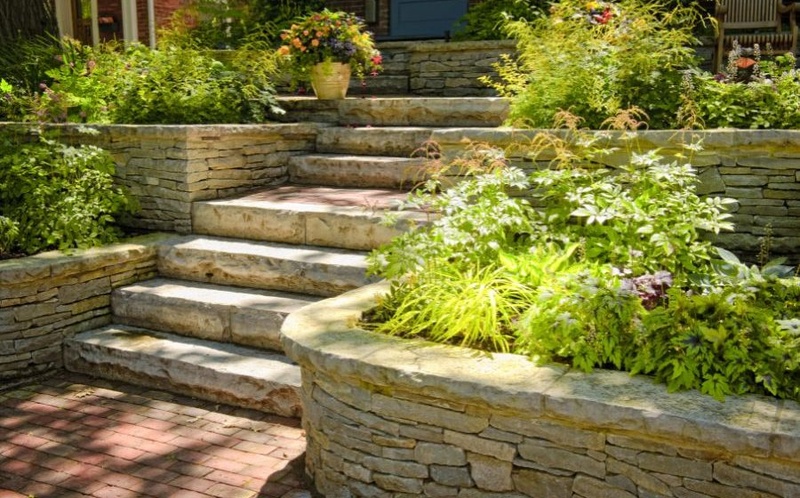
Lead Your Neighborhood in Sustainable Landscaping Practices
From adopting careful watering habits to installing native plants, you can lead the way in modeling sustainable landscaping practices on your Florida property.
In Florida’s varied and vibrant ecosystems, homeowners have the opportunity to lead the charge in sustainable landscaping, creating outdoor spaces that are not only visually stunning but also ecologically responsible.
This guide aims to inspire you to implement sustainable practices and transform your garden into an eco-friendly haven, setting a green standard for your community.
Install Florida-Friendly Plants
Choosing native plants is the cornerstone practice of sustainable landscaping.
Native species such as the butterfly milkweed, Florida tickseed, and the saw palmetto thrive without additional water, fertilizers, or pesticides, making them ideal for a low-maintenance, environmentally friendly garden. These plants support local wildlife, including pollinators like bees and butterflies, enhancing biodiversity.
Smart Watering Saves
Use water efficiently! Drip irrigation systems deposit water directly on your plants’ driplines, reducing moisture waste. Additionally, catching rainwater in barrels provides a sustainable water source for your garden. These practices conserve water, one of our most precious resources, and can lead to substantial savings on water bills.
Composting: Waste Not
Composting kitchen scraps and yard waste not only reduces landfill contributions but also creates rich soil full of nutrients. This “black gold” can enrich your garden, promoting healthier plant growth without synthetic fertilizers. Starting a compost pile is easy and can greatly improve your garden’s health and productivity.
Mulch Magic
Applying a layer of mulch around your plants has numerous benefits. Mulch retains soil moisture, keeping plants hydrated and reducing the need for frequent watering. Mulch also suppresses weed growth, which means less herbicide use, and as it breaks down, it enriches the soil with organic matter. Opt for locally sourced or organic mulch materials to keep your landscaping as sustainable as possible.
Eco-friendly Pest Management
Sustainable landscaping includes managing pests without resorting to harmful chemicals. You can encourage the presence of natural pest predators such as ladybugs and birds by providing habitats for them. For direct pest management, organic pesticides or homemade solutions like soap and water sprays can be effective without the negative environmental impact of conventional pesticides.
Lead and Educate
The final step in sustainable landscaping is to become a community leader and educator. Share your success stories and the beauty of your sustainable garden with neighbors. Offer advice, give tours, or even organize community projects like planting native gardens in common areas. Your efforts can inspire others to adopt sustainable practices, multiplying the positive environmental impact throughout your neighborhood.
By integrating these sustainable landscaping practices into your Florida home, you’re not only creating a beautiful outdoor space for yourself but also contributing to the health of the planet and inspiring your community to follow in your footsteps. Sustainable landscaping is a journey of learning and growth, with each step bringing us closer to a more harmonious relationship with nature.